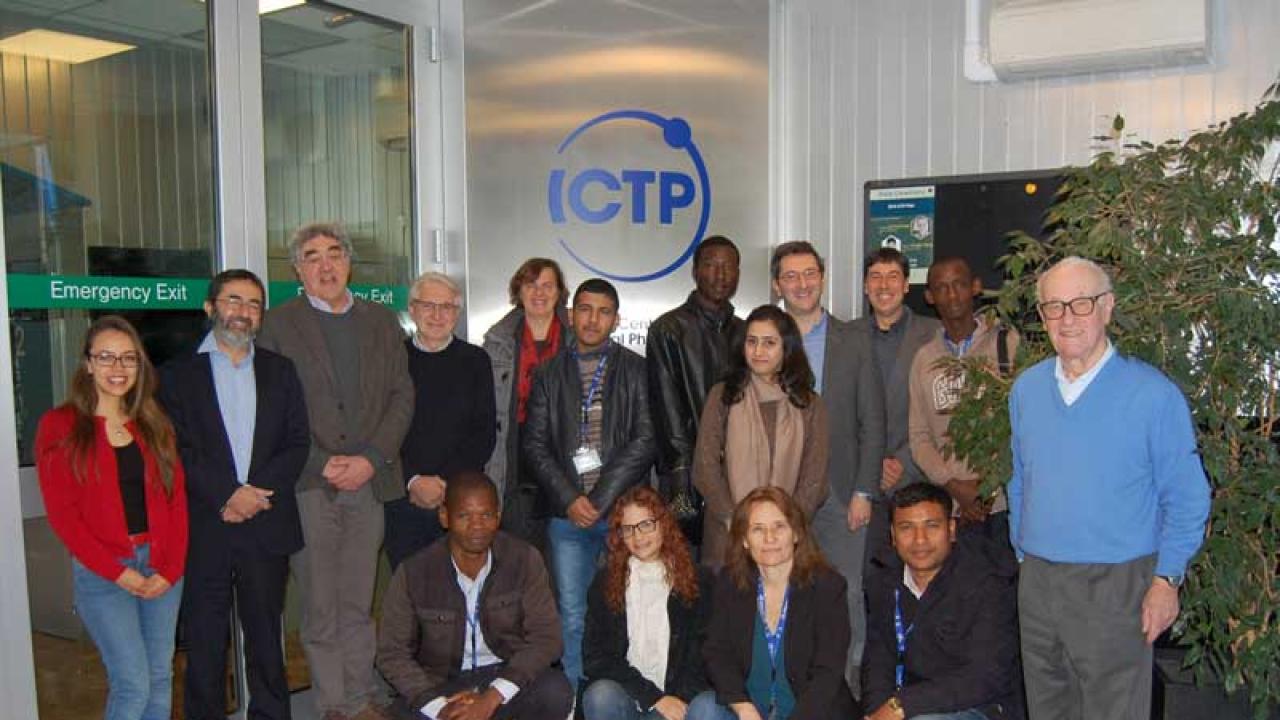
In January, the sixth class of the Master’s in Medical Physics programme (MMP) stepped foot into ICTP. Students from twelve different countries will spend the next two years gaining valuable experience and skills in medical physics. In their first three months of study, students have witnessed Trieste’s harsh winter boras and sunny afternoons along the Barcola waterfront.
The class of 2020 brings many firsts to ICTP. For the first time in the programme’s history, the class includes students representing Cote d'Ivoire, Venezuela, Pakistan, Afghanistan, and Chad. This is also the first year the programme has achieved gender balance, while the worldwide average of women in research is only twenty-eight percent. ICTP is now searching for qualified and enthusiastic applicants for the 2020-2021 Master’s in Medical Physics programme. The application deadline is 22 April, 2019.
Medical physics applies the methods and theories of physics to the needs of medical technology. Medical physicists work to improve the safety of radiation therapy, the precision of diagnostic techniques, and they tailor these techniques to the individual needs of their patients. They can work in a variety of settings including research in laboratories, or directly with patients and other medical professionals.
For many, working in patient care as part of a team is one of the most rewarding aspects of their field. “You’re not only working as a scientist but also in healthcare,” said current MMP student Saba Hussain of Pakistan, “you’re looking for the betterment of the people. You’re part of a team with technologists, engineers, doctors.”
Hussain received her bachelor’s in computational physics and master’s in applied physics from the University of Engineering and Technology, Lahore. She worked in the Shaukat Khanum Cancer Center, and was motivated to pursue more training before returning to her career. She found ICTP when she stumbled upon a flier pinned to her university’s notice board. After attending an ICTP workshop and submitting her application, she became the first student from Pakistan since the programme’s launch in 2013.
Hussain felt called to enter medicine when she saw a growing need for medical professionals in her community. “In Pakistan there are more and more people suffering from breast and lung cancer,” she explained, and the number of diagnosed cases is only growing. Hussain hopes the technical skills she gains at ICTP allow her to have a greater impact on healthcare systems in her community.
The breadth of available physics-related careers provides graduates with many potential career choices. With a bachelor’s in physics, current MMP student Shamirah Nabankema of Uganda knew she had options when it came to her next steps. She realized she was interested in medical school, though she would have needed to begin her studies from scratch. Her friends introduced her to medical physics, and she was fascinated immediately. “At first I didn’t know much about medical physics, but as you go on you fall in love with it every single day,” she said. In a stroke of serendipity, a professor pointed her towards ICTP. She had now found a way to combine her two areas of interest. “I get to do what I wanted to do in medicine and at the same time I didn’t have to drop physics.”
Nabankema was drawn to ICTP for its international community and emphasis on hands-on training. She earned her master’s in medical physics from the Queensland University of Technology in Brisbane, Australia and wanted to gain more experience before entering the workforce. Her time in Brisbane sparked a desire to continue her education in an international environment. “I was learning and studying with all these different people, different cultures, different foods, adventures, it was amazing. I think it’s the reason why I’m here.” At ICTP, Nabankema has been able to continue her education in a global setting.
After the presentation and defense of their dissertation, students graduate with the theoretical and clinical training necessary to be recognised as clinical medical physicists in their home countries. This will qualify them to apply their knowledge to a variety of medical settings, including the safety and precision of diagnostic techniques, and determining treatment plans best suited for their patients. Hussain plans on continuing her career in Pakistan where she originally felt called to medicine. Nabankema hopes to pursue her Ph.D. in medical physics with a focus on radiation therapy. ICTP looks forward to following the class of 2020 and their many more firsts in the years that lie ahead.
---Maria Leuzinger
















